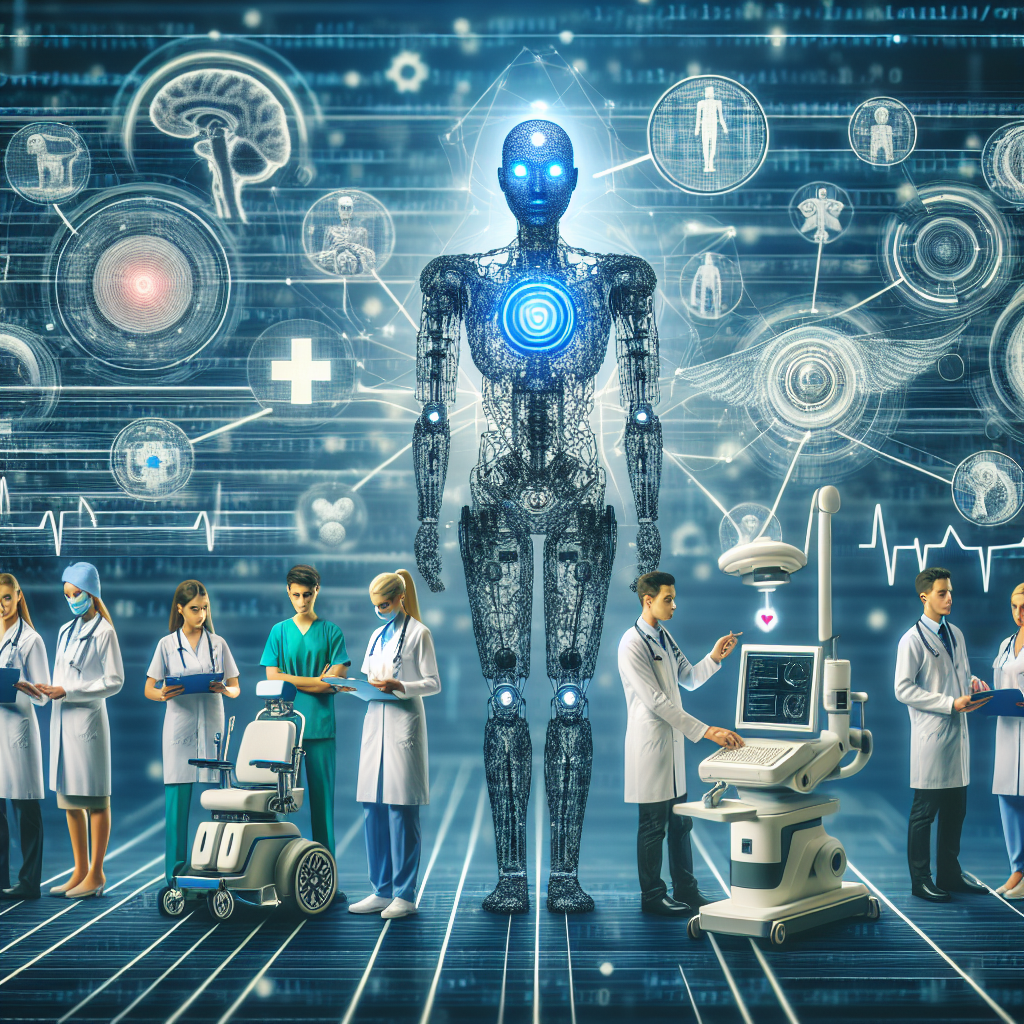Artificial Intelligence (AI) software is revolutionizing the healthcare industry in ways that were once only imaginable in science fiction. From improving patient outcomes to streamlining administrative tasks, AI is transforming the way healthcare is delivered and managed. In this article, we will explore the various ways in which AI software is revolutionizing healthcare and the potential benefits it brings to patients, healthcare providers, and the industry as a whole.
One of the most significant ways in which AI software is revolutionizing healthcare is through the use of predictive analytics. By analyzing vast amounts of patient data, AI algorithms can identify patterns and trends that may indicate potential health issues before they become serious. This allows healthcare providers to intervene early and provide more personalized care to patients. For example, AI software can help predict the likelihood of a patient developing a particular disease based on their genetic makeup, lifestyle, and medical history. This information can then be used to create personalized treatment plans that are tailored to the individual patient’s needs.
Another way in which AI software is revolutionizing healthcare is through the use of virtual assistants. These AI-powered tools can help healthcare providers streamline administrative tasks, such as scheduling appointments, updating medical records, and billing patients. Virtual assistants can also help patients manage their own healthcare by providing them with information about their condition, reminding them to take medication, and even offering guidance on healthy lifestyle choices. By automating these tasks, AI software frees up healthcare providers to focus on delivering high-quality care to their patients.
AI software is also being used to improve the accuracy and efficiency of medical imaging. By analyzing images from X-rays, MRIs, and CT scans, AI algorithms can help healthcare providers identify abnormalities and make more accurate diagnoses. This can lead to faster treatment and better outcomes for patients. In addition, AI software can help radiologists prioritize cases based on the severity of the condition, ensuring that patients with urgent needs are seen first.
In addition to improving patient care, AI software is also revolutionizing healthcare by helping to reduce costs and increase efficiency. By automating repetitive tasks, such as data entry and paperwork, AI software can help healthcare providers save time and resources. This allows them to focus on more important tasks, such as patient care and research. AI software can also help healthcare providers identify inefficiencies in their operations and suggest ways to improve them. By streamlining processes and reducing waste, AI software can help healthcare providers deliver better care at a lower cost.
Despite the many potential benefits of AI software in healthcare, there are also challenges and concerns that need to be addressed. One of the main concerns is the potential for bias in AI algorithms. If the data used to train these algorithms is not representative of the population as a whole, the algorithms may produce biased results that could harm certain groups of patients. Healthcare providers must be vigilant in ensuring that AI algorithms are fair and unbiased in their decision-making.
Another concern is the potential for data breaches and privacy violations. AI software relies on vast amounts of patient data to function effectively, and there is always a risk that this data could be compromised. Healthcare providers must take steps to ensure that patient data is protected and used responsibly. This includes implementing robust security measures, such as encryption and access controls, and obtaining informed consent from patients before using their data for AI applications.
Overall, the potential benefits of AI software in healthcare far outweigh the challenges and concerns. By revolutionizing the way healthcare is delivered and managed, AI software has the potential to improve patient outcomes, reduce costs, and increase efficiency. As healthcare providers continue to embrace AI technology, we can expect to see even more innovative applications that will transform the industry for the better.
FAQs:
Q: What are some examples of AI software in healthcare?
A: Some examples of AI software in healthcare include predictive analytics tools, virtual assistants, and medical imaging algorithms.
Q: How can AI software improve patient outcomes?
A: AI software can improve patient outcomes by analyzing vast amounts of patient data to identify patterns and trends that may indicate potential health issues. This allows healthcare providers to intervene early and provide more personalized care to patients.
Q: What are some concerns about using AI software in healthcare?
A: Some concerns about using AI software in healthcare include the potential for bias in algorithms, data breaches, and privacy violations. Healthcare providers must take steps to ensure that AI algorithms are fair and unbiased, and that patient data is protected and used responsibly.
Q: How can healthcare providers ensure that AI algorithms are fair and unbiased?
A: Healthcare providers can ensure that AI algorithms are fair and unbiased by using representative and diverse data sets to train the algorithms, and by regularly monitoring and auditing the algorithms for bias.
Q: What are the potential benefits of using AI software in healthcare?
A: The potential benefits of using AI software in healthcare include improving patient outcomes, reducing costs, increasing efficiency, and streamlining administrative tasks. AI software has the potential to transform the healthcare industry for the better.

